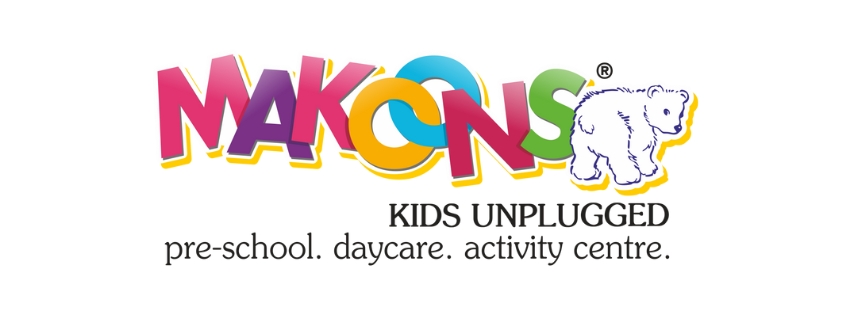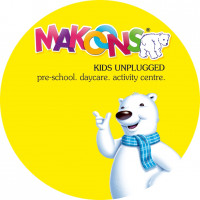Building Parent Trust: How Play Schools Can Establish Strong Connections

Strong 8k brings an ultra-HD IPTV experience to your living room and your pocket.
When it comes to choosing a play school for their child, parents look far beyond just academics or colorful classrooms. They seek a space where their child feels safe, nurtured, and understood. At the heart of this decision lies a single powerful emotion — trust.
Whether you run a standalone play school or manage a growing preschool franchise, building and maintaining parent trust is critical to your success. It leads to long-term loyalty, word-of-mouth referrals, positive reviews, and a strong brand reputation.
In this article, we'll explore actionable strategies that play school can adopt to build strong, lasting connections with parents.
Why Trust is the Foundation of a Successful Play School:
Preschoolers are too young to describe their experience or challenges in detail. That’s why parents need to trust the school blindly — that their child is:
Well cared for:
Learning in a healthy and supportive environment
Safe and protected
Emotionally understood
When parents feel included and informed, they don’t just enroll their child — they become brand ambassadors for your school.
1. Clear Communication is Key
From the moment a parent makes an inquiry, the way your play school communicates sets the tone. Timely, clear, and transparent communication builds confidence.
Best Practices:
Respond promptly to queries (within 24 hours)
Send regular updates via WhatsApp or a parent app
Keep language simple, empathetic, and jargon-free
Use newsletters to share curriculum insights, tips, and school highlights
For preschool franchises, it's essential to have a standardized parent communication protocol across all branches to maintain trust and brand consistency.
2. Create a Warm Onboarding Experience
The first day of school can be more stressful for the parent than the child. A thoughtful onboarding process reassures families.
Tips:
Invite parents for an orientation session
Share a “What to Expect” guide before school starts
Provide daily updates during the first week (photos, messages)
Assign a point-of-contact (like a class coordinator) for quick questions
A well-structured onboarding is often what turns first-time parents into long-term loyalists.
3. Focus on Safety & Hygiene Standards
Post-pandemic, safety isn’t a luxury — it’s an expectation.
Build trust through:
Sanitized classrooms and daily cleaning routines
CCTV access (real-time or recorded)
Background-verified staff
First-aid trained caregivers
Entry/exit protocols with secure ID checks
If you’re part of a preschool franchise, maintain uniform safety standards across all locations. Inconsistencies between branches can harm the entire brand.
4. Offer Visibility into the Learning Journey
Parents want to know what their children are learning and how they’re progressing — but without feeling like they need to hover.
How to create visibility:
Share weekly learning themes or curriculum overviews
Send occasional videos or images of classroom activities
Conduct monthly virtual or in-person parent-teacher meetings
Provide developmental reports every term
Highlight milestones like “first drawing,” “group activity participation,” or “learning to count” — these small wins mean the world to parents.
5. Encourage Parent Involvement
One of the best ways to build trust is to make parents feel like partners in their child’s learning journey.
Ideas to involve parents:
Invite them to storytelling sessions or community events
Host “parent-child” days (crafts, gardening, fitness, etc.)
Encourage volunteers for festive celebrations
Create a parent council for feedback
Such involvement fosters openness and a two-way connection.
6. Train Staff to Build Relationships
Often, it’s the teachers and caregivers who shape the parent experience. A smiling face at drop-off, a warm update at pick-up — these moments add up.
Ensure your staff is trained to:
Communicate with empathy
Listen actively to parent concerns
Offer solutions instead of defenses
Avoid dismissive or robotic responses
Franchisors should invest in consistent staff training modules focused on parent interaction and emotional intelligence.
7. Address Concerns Promptly and Honestly
Mistakes happen. What matters is how you respond.
If a parent raises a concern:
Acknowledge it immediately
Investigate the issue thoroughly
Share updates transparently
Offer an apology or resolution if needed
Never downplay a parent’s emotions. Trust can deepen when parents see that your school is accountable and solution-driven.
8. Leverage Technology to Build Trust
Modern-day parents appreciate convenient, tech-enabled touchpoints.
Useful tools:
Parent communication apps (photos, updates, messages)
Automated fee reminders and digital payments
Online progress trackers
Parent portals for circulars and updates
For preschool franchises, centralized tech platforms help standardize parent experience while making operations smoother.
9. Showcase Social Proof
People trust other people more than brands. So, leverage testimonials, reviews, and real parent stories.
Where to highlight them:
Website
Instagram & Facebook posts
WhatsApp status updates
Admission brochures
Email newsletters
video testimonials from current parents are especially powerful.
10. Stay Consistent with Your Promises
Trust isn’t built overnight. It’s a series of consistent, positive interactions. Stay true to your vision and values.
If your school promises:
Experiential learning
Loving caregivers
Safe infrastructure Then ensure every day reflects that promise.
Parents talk. If their experience consistently matches your message, they’ll not only trust you — they’ll recommend you.
FAQs:
Q1: What’s the first step to building trust with new parents?
Start with clear communication. Be responsive, provide transparent information, and make the onboarding experience stress-free and warm.
Q2: How can a preschool franchise ensure consistent parent trust across locations?
By training staff, using standardized communication tools, and enforcing uniform safety, curriculum, and service standards.
Q3: What are some red flags that reduce parent trust in a play school?
Inconsistent updates, lack of hygiene, dismissive staff behavior, broken promises, and failure to address concerns quickly.
Q4: How often should play schools communicate with parents?
Ideally, weekly updates for activities, monthly PTMs, and immediate responses for queries or incidents.
Q5: Can technology really help in building trust?
Absolutely. Tech platforms ensure transparency, speed, and visibility — all critical for modern-day parent satisfaction.
Note: IndiBlogHub features both user-submitted and editorial content. We do not verify third-party contributions. Read our Disclaimer and Privacy Policyfor details.



